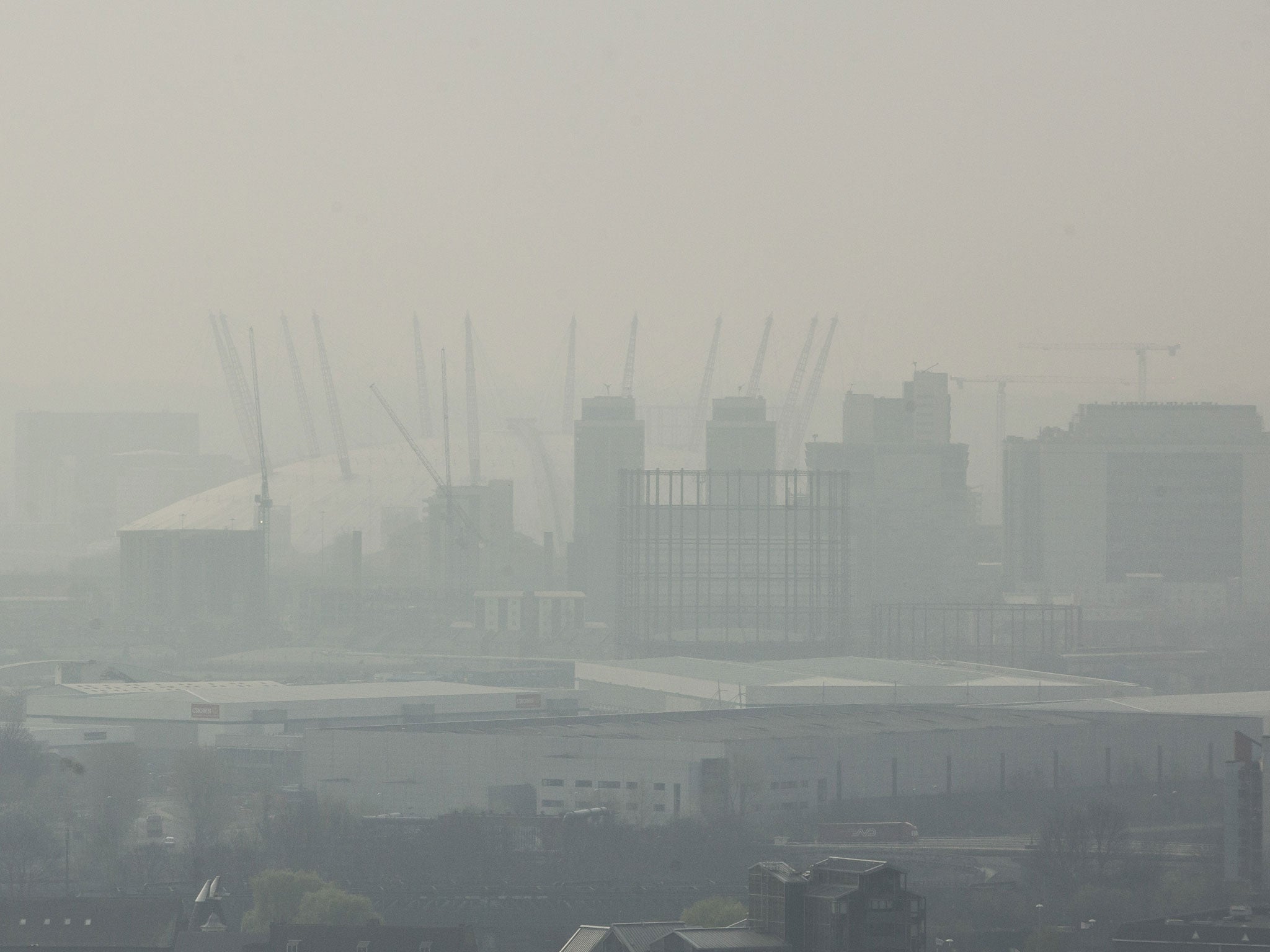
Your support helps us to tell the story
From reproductive rights to climate change to Big Tech, The Independent is on the ground when the story is developing. Whether it's investigating the financials of Elon Musk's pro-Trump PAC or producing our latest documentary, 'The A Word', which shines a light on the American women fighting for reproductive rights, we know how important it is to parse out the facts from the messaging.
At such a critical moment in US history, we need reporters on the ground. Your donation allows us to keep sending journalists to speak to both sides of the story.
The Independent is trusted by Americans across the entire political spectrum. And unlike many other quality news outlets, we choose not to lock Americans out of our reporting and analysis with paywalls. We believe quality journalism should be available to everyone, paid for by those who can afford it.
Your support makes all the difference.A new study has revealed that exposure to air pollution damages the brain of developing mice, affecting the same area of the brain that is known to play a role in autism and schizophrenia in humans.
Researchers from the University of Rochester in the US found that when mice were regularly exposed to fine particle pollution in the first two weeks of their life, they developed a range of brain abnormalities which are consistent with patterns seen in humans suffering from schizophrenia and autism. These harmful effects were mainly observed in the male mice; a finding that corresponds to the fact that boys and men are more likely to be diagnosed with both of these disorders.
“Our findings add to the growing body of evidence that air pollution may play a role in autism, as well as in other neurodevelopmental disorders,” said Deborah Cory-Slechta, professor of Environmental Medicine at the University of Rochester and lead author of the study, published in the journal Environmental Health Perspectives.
Exposure to fine particle air pollution was found to cause inflammation in the brains of the young mice, damaging the development of white matter. The lateral ventricles, cavities in the brain which are filled with cerebrospinal fluid and protect the brain from trauma, were found to be enlarged to up to three times their normal size, filling up the free space in the underdeveloped brains. This dilation of the ventricles has previously been linked to autism and schizophrenia in humans. In addition, after breathing the contaminated air, the male mice exhibited a high level of glutamate in the brain, a neurotransmitter found to be abnormally high in individuals suffering from these same two conditions.
The air pollution created in the lab by Cory-Slechta and her colleagues matches the level typically present during rush hour in a medium-sized US city. The mice were exposed to the impure air for four hours a day during four days of their first week of life, followed by a further four days during the second week after birth. Developmentally, these timings correspond to the period just before and just after birth in human babies. The study focused on the ultrafine particles in polluted air, believed by the researchers to be more detrimental to health than their larger counterparts, which can be filtered out by the nose and lungs. Although most previous research on the adverse health effects of pollution has focused on the consequences for the respiratory system and heart function, earlier studies have linked airborne pollutants to other neurodevelopmental problems, including cognitive decline and depression.
The new findings correspond with a recent study by researchers at the University of Southern California and the University of California, in which children who spent their first year of life in areas with high levels of air pollution were found to be three times as likely to develop autism than those starting out in cleaner surroundings. Currently, an estimated one per cent of people in the UK could be affected by a disorder on the autistic spectrum. The prevalence of autism is growing, and researchers are keen to understand the reasons behind what some describe as an "autism epidemic". Earlier this month a report emerged linking the condition to higher levels of testosterone in the womb. Schizophrenia affects a similar number of people, and, like autism, its causes are far from being fully understood.
According to Cory-Slechta, her discovery does not necessarily mean that pollution is responsible for causing autism or schizophrenia. "I never use the word 'causes,'" she told USA Today. "I try to make people understand it's the interaction of all these risk factors in your life, over your lifespan, that come together."
However, she does believe that changes in regulation should be considered: “I think these findings are going to raise new questions about whether the current regulatory standards for air quality are sufficient to protect our children”.
Join our commenting forum
Join thought-provoking conversations, follow other Independent readers and see their replies
Comments